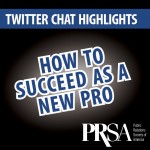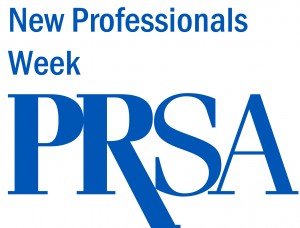As young professionals we are awed by the strength and sharpness we see in Katniss Everdeen. Although the office may not exactly be a “kill or be killed” environment, there are plenty of lessons we can learn from our favorite heroine.
- Build Strong Alliances: Friendships at work can make the difference between happiness and burnout. Social connections at
 work also boost productivity and passion in the workplace. It is important to build relationships with bosses and colleagues that will help you grow professionally. Build relationships with other departments and get to know as many people as possible. Much of Katniss’s success is due to the strong alliances she creates throughout the series.
work also boost productivity and passion in the workplace. It is important to build relationships with bosses and colleagues that will help you grow professionally. Build relationships with other departments and get to know as many people as possible. Much of Katniss’s success is due to the strong alliances she creates throughout the series. - Always Be Prepared: Pushing yourself out of your comfort zone helps you to grow personally and professionally. It is important to first gain credibility as a team player. Remember to keep yourself abreast of industry trends, continuously acquire new knowledge and accumulate evidence of all your hard work. Katniss was always prepared for what was ahead by remaining strategic and resourceful.
- Don’t Be Afraid to Make Sacrifices: Katniss volunteers to take the place of her younger sister and fearfully participates in the Hunger Games. Always remain as enthusiastic as possible, even when taking on many tasks or working with clients you may not yet understand. Taking on both small and large tasks with enthusiasm, staying at the office late when necessary and being mindful of deadlines are all important factors in establishing a stellar reputation with you supervisors and co-workers.
- Get Inspired From Your Desk: Staying motivated at work can be tough. Customizing your desk space can make a huge difference in keeping your energy and creativity up. In the series, Katniss wears a mockingjay pin to remind her of her friends and family at home. Display your own “mockingjay pin” in the form of a desk accessory. This can be a framed picture, inspirational or humorous desk calendar!
- Don’t Jump to Conclusions: It is important to gain the skills to lead, coordinate, and collaborate with others on work activities by always facilitating good communication. Don’t spend too much time analyzing the tone of an email or thinking about a coworker who seems unfriendly. In the workplace you will come across a lot of different management styles and personalities. Remember that some may find it difficult to express themselves and emails can be deceiving. Never be afraid to pick up the phone for better communication.
What are some of your tried and true tips for adjusting to office life as a new professional? “May the odds ever be in your favor!”
 Magan Felitto is currently a freelance public relations professional, working with a major entertainment company in New York City. She graduated from the Fashion Institute of Technology’s, Advertising & Marketing Communications program in Summer 2013 with four years of experience as Vice President of Chapter Development of her former PRSSA chapter and a plethora of internships under her belt. She is also a proud member of PRSA National, PRSA-New York, and PRSA New Professionals Section. Ms. Felitto can be reached at MaganFelitto@gmail.com.
Magan Felitto is currently a freelance public relations professional, working with a major entertainment company in New York City. She graduated from the Fashion Institute of Technology’s, Advertising & Marketing Communications program in Summer 2013 with four years of experience as Vice President of Chapter Development of her former PRSSA chapter and a plethora of internships under her belt. She is also a proud member of PRSA National, PRSA-New York, and PRSA New Professionals Section. Ms. Felitto can be reached at MaganFelitto@gmail.com.









